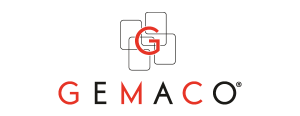Gemaco Wins Partial Summary Judgment Against Borgata in Ivey Edge-Sorting Case
Kansas City-based playing card manufacturer Gemaco, Inc. has likely emerged triumphant from the lawsuit brought against it by New Jersey’s Borgata Hotel Casino & Spa as a co-defendant in the high-profile “edge sorting” case also including pro poker player Phil Ivey.
 In a court order and accompanying opinion released on Monday, March 26 and just published online, presiding judge Noel L. Hillman denied the Borgata’s motion for summary judgment against Gemaco. Judge Hillman also granted Gemaco summary judgment and effective dismissal of five of the six counts brought by the Borgata’s parent company, Marina District Development Corp., in the case.
In a court order and accompanying opinion released on Monday, March 26 and just published online, presiding judge Noel L. Hillman denied the Borgata’s motion for summary judgment against Gemaco. Judge Hillman also granted Gemaco summary judgment and effective dismissal of five of the six counts brought by the Borgata’s parent company, Marina District Development Corp., in the case.
The only count left active by Judge Hillman is for a breach of express warrant claim, after Hillman dismissed in grand manner all of the Borgata’s assertions that minute assymetries on the purple Gemaco cards requested by Ivey and co-defendant Cheung Yin Sun were the primary cause of the Borgata losing $9.6 million to Borgata over the course of four lengthy mini-baccarat sessions. Hillman also broadly dismissed the Borg’s claims that Gemaco was guilty of any negligence in the case.
The single active count left remaining isn’t much. According to Hillman, the damages the Borgata could collect are the sum of the costs of 32 decks of cards used in the games fouled by Ivey’s and Sun’s scheme. That adds up to the princely sum of $26.88. As Hillman wrote:
“If, after trial, Borgata is successful on its breach of warranty claims against Gemaco, its recovery would be limited to $26.88. The Court wonders whether, under such circumstances, the game is worth the candle.”
The Borgata now has three options, according to Hillman:
“The Court can (1) proceed to trial on Borgata’s breach of warranty claims, (2) stay Borgata’s claims against Gemaco and certify as final Borgata’s judgment against Ivey and Sun pursuant to Rule 54(b) so that Ivey and Sun’s appeal may proceed, or (3) afford Borgata and Gemaco a period of time to enter into a private resolution of Borgata’s claims against Gemaco. The parties will have 15 days to notify the Court which path they wish to take, or suggest any other reasonable path forward not anticipated by the Court.”
 The entire case brought by the Borgata was highly suspect from the start. However, the casino’s insistence on naming Gemaco as a co-defendant — a not very transparent attempt to target Gemaco’s deep corporate pockets should it fail to collect from Ivey — ended up causing undue delays in the other portion of the case.
The entire case brought by the Borgata was highly suspect from the start. However, the casino’s insistence on naming Gemaco as a co-defendant — a not very transparent attempt to target Gemaco’s deep corporate pockets should it fail to collect from Ivey — ended up causing undue delays in the other portion of the case.
In that other portion of the case, the Borgata had already received a $10.12 million judgment against Ivey and Sun. The judgment against Ivey and Sun was issued by Judge Hillman and was immediately appealed by Ivey and Sun, but Hillman refused to allow the appeal to a higher court until the Borgata’s legal allegations against Gemaco were resolved. Among the reasons for this was the legal need to net let the Borgata profit by collecting the same multi-million-dollar judgment twice from separate co-defendants.
The Borgata had claimed in its lawsuit that the cards provided to them by Gemaco were the proximate cause of the casino’s near-$10-million loss via Ivey’s edge-sorting scheme. But even though Gemaco’s cards were found to have minute asymmetries, Hillman scoffed at the notion that Gemaco, instead of the Borgata, was to blame.
As Hillman wrote, “[T]he Gemaco asymmetrical cards were necessary – but in and of themselves not sufficient – to accomplish [Ivey’s] scheme.”
This paragraph, from deeper in Hillman’s 27-page opinion, expounds on that point and exposes the falsity of the Borgata’s claim:
“Thus, it is not Gemaco’s cards that were the ‘but for’ cause of Borgata’s losses, but rather all the subsequent required elements requested by Ivey and agreed to by Borgata, each a required and integral part, which together caused Borgata’s losses. It is true that the scheme would not have worked without asymmetrical cards. They were necessary for the scheme. But they were equally insufficient. Out of the box, asymmetrical cards are symmetrical until strategically turned and maintained in that orientation. In that sense, it was Borgata’s acquiescence in Ivey’s accommodations that were the but for cause of Borgata’s losses.”
Given that Judge Hillman has given the Borgata and Gemaco only 15 days to notify the court of any settlement discussion, it’s likely that this portion of the case will end soon — and almost certainly with all counts against Gemaco being dismissed.
That final ruling will then allow Ivey’s appeal in that matter to move forward. That will likely be as contentious as the trial before Hillman, which itself spanned several years. For instance, the Borgata has already filed a motion seeking to force Ivey to post a $10.13 million bond — the entire value of the judgment — merely to be allowed to appeal the case.




















COMMENTS